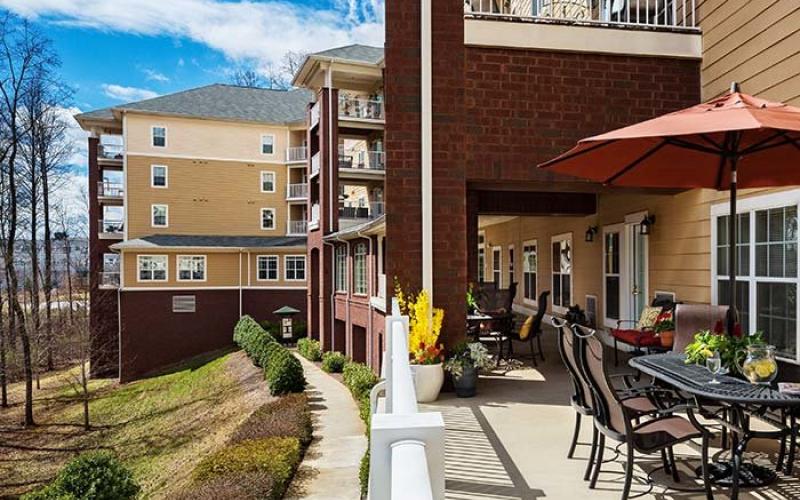Table of Content
- Virginia Medicaid Income & Asset Limits for Nursing Homes & In-Home Long Term Care
- Appomattox Health And Rehabilitaton Center
- Harrisonburg Hlth & Rehab Cntr
- Applying For Virginia Medicaid Long Term Care Programs
- There are 275 nursing homes that accept Medicaid in Virginia
- Determine Your Medicaid Eligibility
- Community Memorial Hospital Hundley Center
This can be done by spending “excess” assets on ones that are not counted towards eligibility. This includes making home modifications (wheelchair ramps, chair lift, grab bars, etc.), prepaying funeral and burial expenses, and paying off mortgage or credit card debt. Remember, assets cannot be gifted or sold under fair market value, as doing so violates the look back rule. It is recommended one keep documentation of how assets were spent as proof the look back rule was not violated. Virginia has a 5-year Medicaid Look-Back Period that immediately precedes one’s Medicaid application date.
They can also use Nursing Home Compare, which is a federal government website that has information about more than 15,000 nursing homes across the country. All of the nursing homes on this site are either Medicaid- or Medicare-approved. During the process of determining financial eligibility, it’s important to start gathering documentation that clearly details the financial situation for the Virginia Medicaid applicant. These documents will be needed for the official Virginia Medicaid application. Virginia uses its Uniform Assessment Instrument to determine if this level of care is needed.
Virginia Medicaid Income & Asset Limits for Nursing Homes & In-Home Long Term Care
Many nursing homes also have specially equipped units designed for individuals with impaired memory and cognitive abilities, including dementia and Alzheimer’s disease. Read on to find out when Virginia Medicaid will cover assisted living facilities and home health care. In Virginia, Medicaid is a very common source of funding for long-term care, particularly when people have already used up all of their own assets to pay for care. Approximately 70% of nursing home residents nationwide use Medicaid to pay for their nursing home care. Virginia's Medicaid program has fairly lenient income limits for qualifying for nursing home care coverage. Use the search tool below to find nursing homes near you that accept Medicaid, Medicare and / or Veterans Health Care.
It contains quality of care and staffing information for all 15,000 plus Medicare- and Medicaid-participating nursing homes. Medicaid members who are served through the fee-for-service program and are not enrolled in a managed care health plan can search for participating Medicaid providers through the provider portal. Medicaid uses the information in your screening to decide whether you need a nursing home and, if so, what kind of nursing home is appropriate for you. In general, for a nursing home to be considered medically necessary, you must have a medical condition that is so serious that you need the level of nursing care that is only available in an institution. The state follows complicated rules to decide whether your house is exempt or not.
Appomattox Health And Rehabilitaton Center
Nursing homes are properties that provide residents with permanent, daily custodial care and limited medical care. These locations are typically not ideal for seniors who require extensive medical attention. However, most nursing homes can accommodate seniors who need regular medical care if they are physically able to travel to medical appointments and they have access to transportation.
In Virginia's Medicaid Managed Care program, you are a member of a Managed Care Organization . An MCO is a health plan with a group of doctors and other providers working together to give health services to its members. Your MCO will cover all Medicaid services you get now, including medical services, behavioral health services, nursing facility services and “waiver” services for community-based long term care. The Office of the State Long-Term Care Ombudsmanadvocates for older persons receiving long-term care services.
Harrisonburg Hlth & Rehab Cntr
However, Nursing Home Medicaid recipients are only allowed to keep $40 / month of their income as a “personal needs allowance” and must give the state the rest to help offset nursing home costs. There are many different ways to become eligible for Virginia's Medicaid program, and there are specific eligibility rules for long-term care services like nursing homes, assisted living facilities, and home health care. Many people either do estate planning a few years before transitioning into a nursing home or “spend down” personal or professional assets to pay for nursing homes care until they are eligible for Medicaid. In Virginia, Medicaid covers long-term care services in nursing homes for qualified adults who cannot afford the cost of the care. Unlike Medicaid, Medicare typically does not cover long-term care stays in a nursing home.
Without proper planning strategies in place, the home will be used to reimburse Medicaid for providing care rather than going to family as inheritance. Income is counted differently when only one spouse applies for regular Medicaid / Aged Blind and Disabled; The income of both the applicant spouse and the non-applicant spouse is calculated towards the applicant’s income eligibility. 1) Institutional / Nursing Home Medicaid – This is an entitlement program; Anyone who is eligible will receive assistance.
Exemptions include personal belongings, household furnishings, an automobile, irrevocable burial trusts, and generally one’s primary home. For home exemption, the applicant must live in their home or have intent to return, and in 2022, their home equity interest cannot be more than $636,000. Equity interest is the amount of the home’s value owned by the applicant. The home is automatically exempt if the applicant has a spouse living in it. PACE is intended to help Virginia residents who need a Nursing Facility Level of Care but want to keep residing and receiving care in their home or somewhere else in the community.
Medicaid will pay for a nursing home only when it is medically necessary. You must show that you require a "nursing home level of care," meaning that you have a physical or mental condition that requires nursing supervision and assistance with activities of daily living . Prior to submitting an application for Medicaid benefits in Virginia, elderly applicants should be certain that all eligibility requirements for the program for which they are applying are met. Having income and / or assets over the limit can result in a denial of benefits without Medicaid planning. For additional information about Medicaid planning click here and for more information about applying for long-term care Medicaid, click here. All assets of a married couple are considered jointly owned regardless of the long-term care Medicaid program for which one is applying.
They are only allowed to keep a “personal needs allowance” of $40 / month. This can be spent on personal items such as clothes, snacks, books, haircuts, cell phones, etc. In this case, they could spend their personal needs allowance on the item. The Virginia Department of Veterans Services provides eligible Veterans and their spouses with access to federal and state benefits that may help them afford certain long-term care services.

Medicaid is a jointly funded state and federal health care program for low-income persons of all ages. This page, however, is focused on Medicaid eligibility for older Virginia residents, aged 65 and over. In addition to nursing home care and assisted living services, Virginia Medicaid pays for many non-medical support services that help frail seniors remain living in their homes. Virginia's Medicaid program pays for nursing home stays for those without a lot of income who need help with activities of daily living. Nursing homes are expensive; in 2018, the average daily cost of a private room in a nursing home in Virginia was $280. Assisted living facilities and home health care services are a bit more affordable, but still costly.
It is located near by the Newington neighborhood of Springfield, Virginia. With around 28,000 people residing in the zip code of 22150, the neighboring area is heavily populated. The city has a mean per capita income of $47,000 and a mean household income is $107,000 (the Virginia state average is $51,000). The average home price in Fairfax is $315,000, which is somewhat higher than the Virginia average of $277,500. In Virginia, the Department of Medical Assistance Services administers the Medicaid program.

The functional, or medical, criteria for Nursing Home Medicaid in Virginia is needing a Nursing Facility Level of Care , which means the applicant requires the kind of full-time care that can only be provided in a nursing home. Medicaid is a joint federal and state program, so its rules, coverage plans and even its name all vary by state. This article focuses on Virginia Medicaid Long Term Care, which is different from regular Medicaid. Nursing Home Compare allows consumers to compare information about nursing homes.
Determine Your Medicaid Eligibility
At the time of writing (Mar. 2022) , the nationwide average daily cost for a shared room is $260. A “shared room” is important because typically Medicaid will only pay for shared rooms, not private rooms. If you need Medicaid for long-term care, then you cannot have more than $585,000 in equity in your home in 2019. In addition, your home is only an exempt resource for the first six months that you are in an institution. If your spouse, dependent child, disabled adult child, or disabled parent continues to live there, then your home is exempt indefinitely. If your income is below 80% of the FPL, your home can also remain exempt after six months if you intend to return to it or if selling it would cause undue hardship to a co-owner.



No comments:
Post a Comment